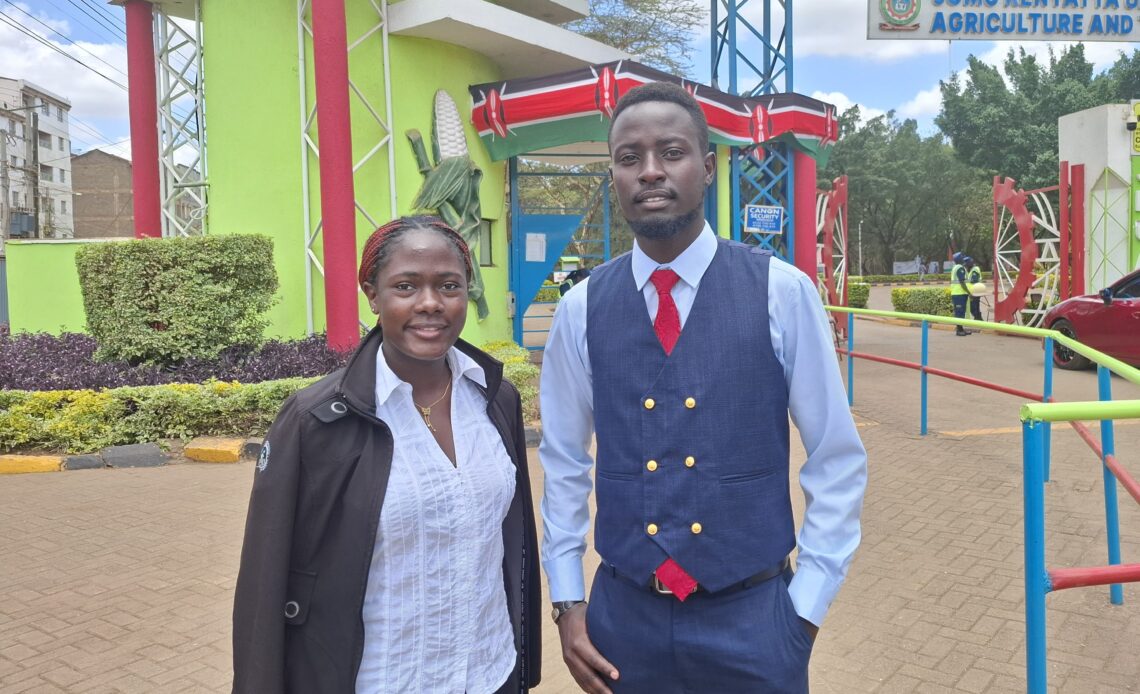Students from Jomo Kenyatta University of Agriculture and Technology (JKUAT) have issued a seven-day ultimatum to the government and the Universities Academic Staff Union (UASU) to resolve the ongoing lecturers’ strike that has paralyzed learning in public universities across the country.
Led by Peace Love Issa, President of the JKUAT Students Association and a final-year student pursuing a Bachelor of Science in Telecommunication and Information Engineering, the students decried the continued disruption of academic programs, saying they have become “collateral damage” in the standoff between the government and university lecturers.
“We are gathered here as comrades suffering, as collateral damage to the ongoing standoff between the Government of Kenya and UASU,” said Issa. “Our HELB funds are almost depleted, our upkeep is running out, and our parents are straining to pay fees yet we are not learning. We have lost hope.”
Issa accused both the government and UASU of neglecting students’ welfare, saying their continued disagreement was causing massive academic and financial strain.
“We are giving both parties an ultimatum of seven days to resolve their conflict so that learning can resume immediately,” he warned. “Failure to which, they should prepare for decisive action from students. It will not be business as usual.”
He further emphasized that education is a constitutional right, urging the government to act with urgency and restore normal learning activities in all public universities.
“Our parents have paid fees, we have complied, and we expect classes to resume. We will not continue to suffer due to the inability of both parties to reach an agreement,” he added.
Nursing Students Also Cry Out
Echoing the same frustrations, Sarah Murebani, a Bachelor of Science in Nursing student representing the Nursing Students Religious Organization, said the strike was heavily affecting nursing students, who follow a tight academic schedule with three trimesters each year.
“We are tired and frustrated of being in school without learning. As nursing students, we are supposed to cover three trimesters in an academic year,” she said. “If the strike continues, we will not have enough time to complete our coursework, especially for first-year students who are yet to start their studies.”
Murebani warned that the prolonged disruption will have long-term effects on the quality of training for nursing students, potentially affecting healthcare service delivery in the future.
“This is the most crucial part of the academic year, and if learning doesn’t resume soon, the entire nursing program will be thrown off schedule,” she added.
The ongoing UASU strike, has crippled learning in public universities nationwide as lecturers push for the full implementation of their Collective Bargaining Agreement (CBA) and salary harmonization.
With students growing increasingly restless, pressure is mounting on the Ministry of Education and UASU to find a lasting solution to avert a potential wave of student demonstrations across campuses


